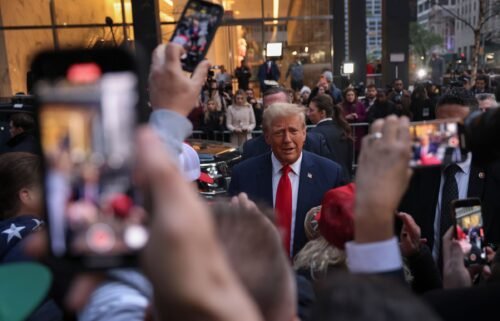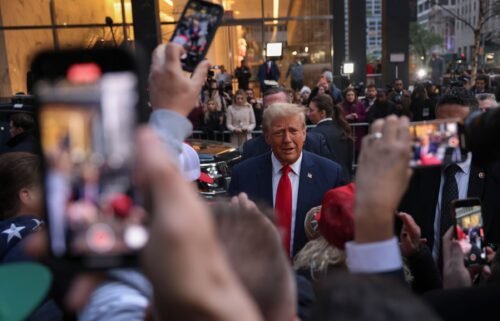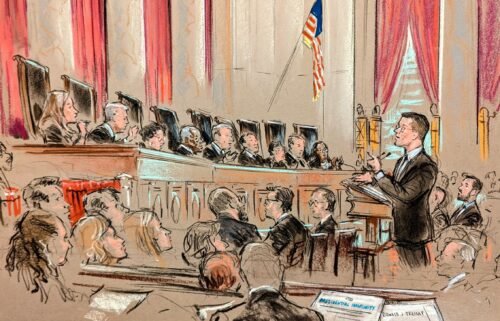Booker and Sanders propose a new federal agency to set drug prices

Sens. Cory Booker and Bernie Sanders are pushing for the creation of a new federal agency aimed at controlling the rising cost of prescription drugs.
The pair, who are both vying for the 2020 Democratic presidential nomination, proposed a bill Friday that would create a Bureau of Prescription Drug Affordability and Access, which would be responsible for determining the list prices of medications. The big stick: If a drug maker didn’t comply, the government would void its exclusivity protections and allow other companies to produce generic versions of the medicine.
The legislation is the latest of dozens of bills in Congress that seek to address the high cost of drugs, one of Americans’ biggest health care concerns. The proposals range from small measures to bring additional lower-priced generics to market to major reforms, including allowing drug importation and tying US prices to medications’ cost in other developed countries.
But even though the issue is a rare area of bipartisanship on Capitol Hill and has been a focus of President Donald Trump, the effort to reduce prices has stalled in Congress, partly because of divisions within parties.
House Speaker Nancy Pelosi is pushing a sweeping bill that would empower the federal government to negotiate prices of certain medications, as well as restructure Medicare’s Part D drug plan. It would slap penalties on drug makers that don’t participate in negotiations. That legislation is expected to pass that chamber, despite some opposition from progressives, but is unlikely to make it through the Senate. Meanwhile, Sen. Chuck Grassley, Republican of Iowa, is looking to build support in his party for his own bipartisan legislation.
Meanwhile, the Trump administration is moving forward with executive branch proposals to allow the importation of certain drugs and to base Medicare reimbursements for certain medications on their price in other countries, Health & Human Services Secretary Alex Azar said at an Axios event on Wednesday.
The pharmaceutical industry has generally opposed these efforts, instead calling on lawmakers and the President to focus on reducing the prices that consumers pay at the pharmacy counter.
The legislation sponsored by Booker and Sanders, as well as California Sen. Kamala Harris, who is also running for the Democratic nomination, is even more progressive than the previous Democratic bills to allow the federal government to negotiate prices with drug companies, which has been a non-starter in the GOP-led Senate. It is another example of how some Democrats — and presidential candidates — are pushing the party leftward.
Under the bill, drug makers bringing a new product to market would have to submit to the bureau the cost of research and development, the cost of the drug and of comparable medications in other countries and the federal investments that contributed to the drug’s discovery and production.
The bureau, which is modeled after Canada’s Patented Medicine Prices Review Board, would base the drug’s price on these and other factors. If the drug maker fails to adhere to that price, the Department of Health & Human Services would allow other companies to produce a generic version.
For drugs already on the market with limited generic competition, the bureau would set an interim price equal to the median price in 11 other developed countries while it conducts a full review.
And the bureau would also examine price increases that are higher than the rate of inflation. If the agency deems the hike is not appropriate and the manufacturer doesn’t lower the cost, the bureau could void the patent or other government-granted exclusivity periods to allow cheaper versions to enter the market.
Consumer advocates praised the proposal, particularly the bureau’s ability to void patents and exclusivity periods.
“If you are not going to charge a fair price, we will let someone else manufacture your drug,” Frederick Isasi, executive director of Families USA, an advocacy organization said of the provision.
The nation’s patent laws and exclusivity protections provided by the Food & Drug Administration contribute to high drug prices, said Steve Knievel, access to medicines advocate at Public Citizen, an advocacy group.
“The government-granted monopolies are what enabled drug companies to price gouge consumers in the US,” he said. “Getting to the heart of these abuses requires going after the monopoly.”




